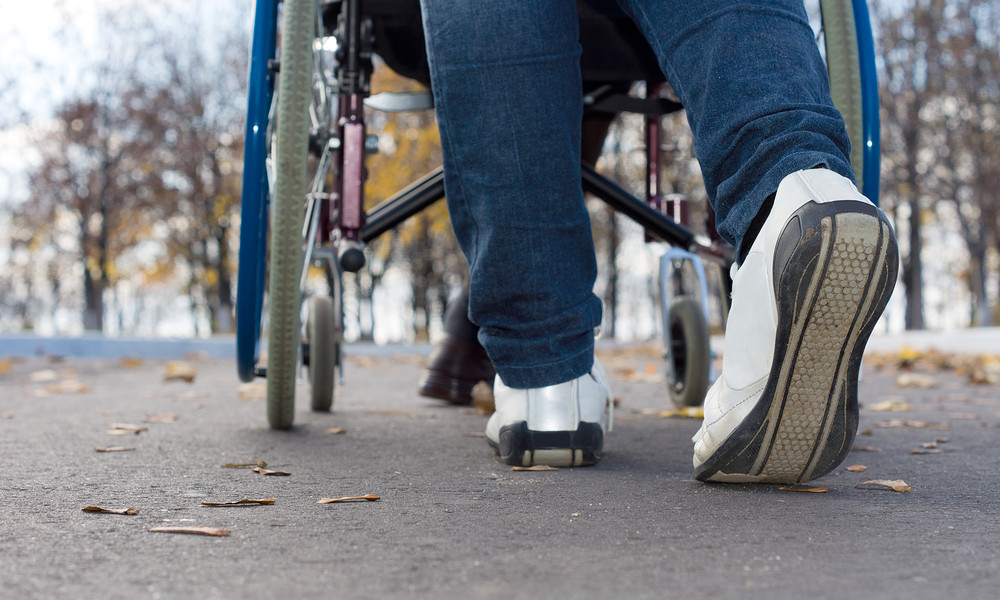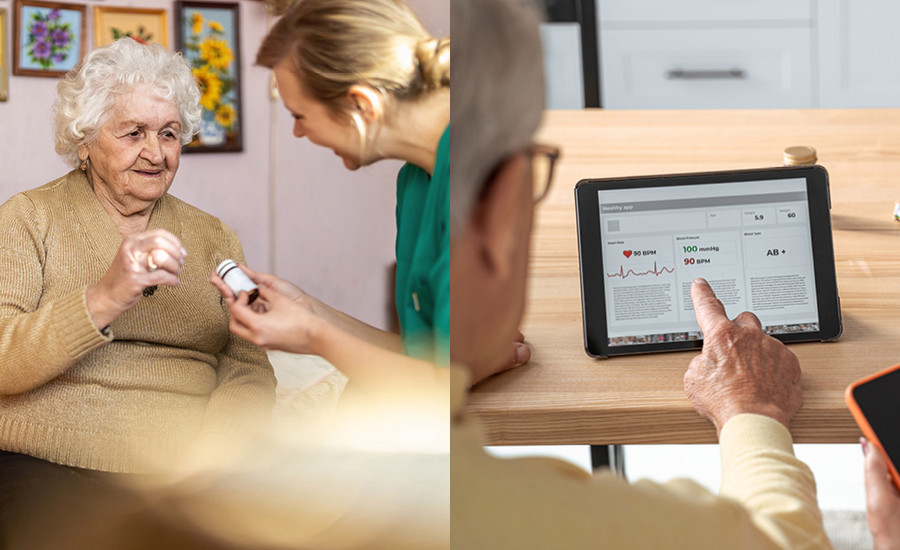Earlier recognition of dementia in people with profound intellectual and multiple disabilities
- Research stories

Gert had a little red car that he always took with him everywhere. Where Gert was, the little car was as well. But at some point, he left it lying around and stopped paying attention to it. Joop always stuck out his arm when he got dressed when someone held out a sleeve to him. He doesn't do that anymore. It can be small changes in the functioning and behaviour of someone with profound intellectual and multiple disabilities (PIMD) that indicate that something is wrong. And those changes can mean that someone has dementia. Researcher Maureen Wissing: 'You have to look very carefully to notice such changes.'
The research question came from the professional practice: how do you know if someone with PIMD has dementia? Family members and carers sometimes saw changes they couldn't make sense of and wondered what was going on. Often dementia was not considered. Because does that actually occur in people with PIMD? Maureen Wissing conducted research on this topic at the research group Healthy Ageing, Allied Health Care and Nursing, in collaboration with the UMCG, the University of Groningen and the healthcare organisations Alliade, 's Heeren Loo, Ipse de Bruggen and Royal Visio. On 13 November 2023, she obtained her PhD on the subject, which is in line with the Hanze social theme of vulnerability and appropriate care. Maureen: 'It wasn't an easy question to answer as it turned out, so we started with two literature studies, to see what was already there.' Maureen looked at which symptoms were described in the literature, while student Anna Spoelsta took care of a subsequent part. Anna (now a lecturer in Analysing and Improving Care and Practical Learning Friesland at the Hanze) worked together with Maureen. Anna: 'For my studies, I had to do a literature review and I wanted it to be practical, so it could be used in practice. I looked into how often certain syndromes with the same symptoms as dementia occurred in people with PIMD. It was nice to be able to spar with Maureen about this subject. Looking at dementia in this target group is a relatively new research area and I found that fascinating.'
After the literature review, focus groups were organised in which family members, counsellors and practitioners discussed what they encountered in practice. Making a diagnosis turned out to be a difficult process. Cognition and communication are often very different in people with PIMD and sometimes there are also medical problems. You have to separate these from changes caused by dementia. To determine this, a diagnostic tool was developed in the form of a list of 42 questions that a behavioural expert completes together with family or counsellors. The list includes questions such as: has there been a change in recognising daily actions in the last six months? By ruling out certain things, such as depression, it becomes increasingly clear whether it could be dementia. The list is also available online so that behavioural experts can use it in practice. Knowledge modules have been developed for family and caregivers, which are easy to work with and offer them the opportunity to gain more knowledge about dementia.
The research that has been done is all reflected in the questions of the diagnostic tool. People from the professional practice were also involved in its development, for example Roos Dijkstra, behavioural expert at 's Heeren Loo, an organisation for people with mild to severe intellectual or other disabilities. 'Working in this field is and advantage,' says Roos, 'because then you have a better idea of which questions can work. I also learnt how important it is to record your clients' behaviours in your own practice. Because then the deterioration becomes more visible. Because you put it down on paper, the knowledge isn't stuck in people's minds. I thought that was an important lesson.'
Maureen: 'Until we started this research, we didn't know how to diagnose dementia in people with PIMD. We didn't know what the symptoms were. Now it is easier for family and caregivers to recognise symptoms of dementia at an earlier stage. They can therefore also raise the alarm earlier so that doctors and behavioural experts can make a diagnosis, although this is still very difficult in practice. Family and caregivers are therefore the most important people in this process. Because if they don't recognise the signals, the rest of the diagnostics won't get going either.'
The drugs that have been developed lend themselves well to transferability. A PowerPoint presentation has been made for each knowledge module and they are very suitable for education. Teachers can optionally add slides to their teaching material. Free material can also be downloaded from the website. In addition, Maureen gives many presentations at schools and in care organizations, where she explains dementia in people with PIMD. 'We want to continue to raise awareness,' she says. Family and supervisors also make extensive use of the brochure about the case of Gijs, which was published together with Maureen's thesis. The brochure (in Dutch) is an important starting point for people to recognise symptoms of dementia. Maureen: 'We bring the research closer to the practice by using cases that are recognisable. I think we have taken important steps in this direction with the knowledge modules and the brochures. And because the professional practice was so closely involved in developing it, it's also easier to translate it back. It is precisely this kind of collaboration that makes the products so strong.'
'When we started, there were people who wondered if this research was actually useful,' says Maureen. "These people are already so limited, what difference does it make?" they said. And it was indeed a difficult process, but we show that you can make a difference. If you don't see signals, or don't want to see them, you're selling someone short. If you know what's going on, there's more understanding, and then you can do something. Such as, for example, adjusting the guidance or the living environment. People with PIMD are just as entitled to a diagnosis and the best possible care as anyone else. Our research has added value. We hear back from families that if they had recognised symptoms earlier, they could have acted differently. The knowledge modules we have developed work and that gives people something to hold on to.'

Onderzoeker Lectoraat Healthy Ageing, Allied Health Care and Nursing
Petrus Driessenstraat 3, 9714 CA Groningen

Would you like to know more about the projects of the research group Healthy Ageing, Allied Health Care and Nursing?
Visit the research group's pageHow satisfied are you with the information on this page?